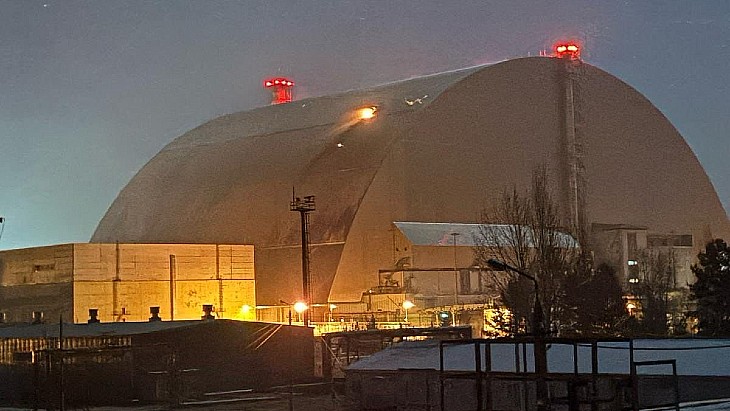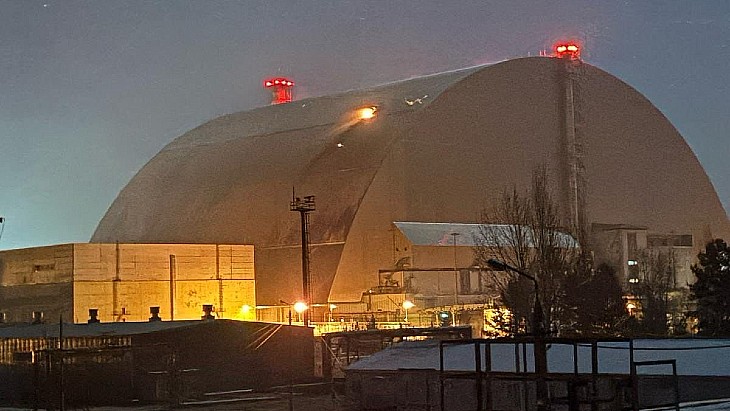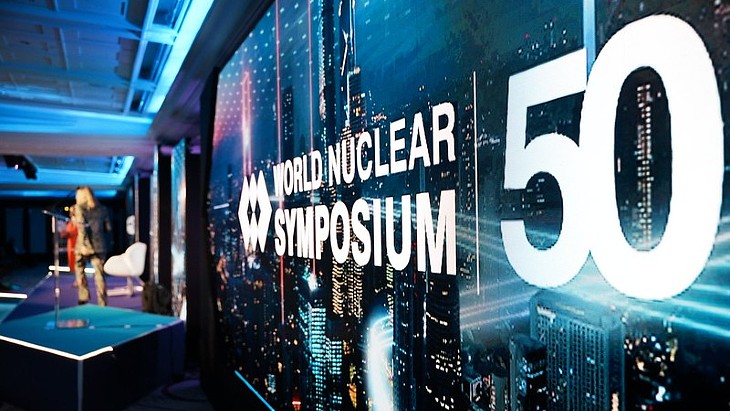The document was signed by IAEA Deputy Director General Lydie Evrard, who heads the agency's Department of Nuclear Safety and Security, and Ambassador Takeshi Hikihara, Japan's permanent representative to the international organisations in Vienna.
At the Fukushima Daiichi site, contaminated water is treated by the Advanced Liquid Processing System (ALPS), which removes most of the radioactive contamination, with the exception of tritium. This treated water is currently stored in tanks on-site. The total tank storage capacity amounts to about 1.37 million cubic metres and all the tanks are expected to be full around the summer of 2022.
In April, the Japanese government announced its formal decision that the treated water stored at the Fukushima Daiichi site will be discharged into the sea. The basic policy calls for the ALPS-treated water to be discharged "on the condition that full compliance with the laws and regulations is observed, and measures to minimise adverse impacts on reputation are thoroughly implemented".
After its announcement, the Japanese government requested assistance from the IAEA to review the country's plans and activities against international safety standards and also to support and be present during environmental monitoring operations there. The IAEA has said Japan's chosen disposal method is both technically feasible and in line with international practice.
"The signing of the Terms of Reference marks an important step as the document sets out the broad framework for how the IAEA will support Japan when it implements its plan to gradually release the treated water in a safe and transparent way," the IAEA said. "The agency's involvement before, during and after the water disposal will provide confidence - in Japan and beyond - that it takes place in line with the international safety standards which aim to protect people and the environment."
The IAEA said the signing of the document allows it to plan and implement a detailed programme of activities including review missions, in line with relevant IAEA safety standards and guidance. The first mission is expected to travel to Japan later this year.
Under the agreed terms, the IAEA will examine key safety elements of Japan's discharge plan, including: the radiological characterisation of the water to be discharged; safety related aspects of the water discharge process; the environmental monitoring associated with the discharge; the assessment of the radiological environmental impact related to ensuring the protection of people and environment; and, regulatory control including authorisation, inspection and review and assessment.
An IAEA Task Force will implement the assistance to Japan, which will include advice by a group of internationally recognised experts from Member States, including members from the region, under the authority of the IAEA Secretariat.
Japan intends to start releasing the treated water in about two years' time, and the entire operation could last for decades.
Tokyo Electric Power Company, operator of the Fukushima Daiichi plant, said it will "continue to move forward with suitable handling of ALPS-treated water based on the advice, etc. received during this review".
"The IAEA will play a vital role in monitoring and reviewing Japan's implementation of its plan," said IAEA Director General Rafael Mariano Grossi. "As the eyes of the international community, IAEA experts will be able to verify that the water discharge is conducted safely. This is of paramount importance to reassure people in Japan and elsewhere in the world, especially in neighbouring countries, that the water poses no threat to them."

.jpg)











